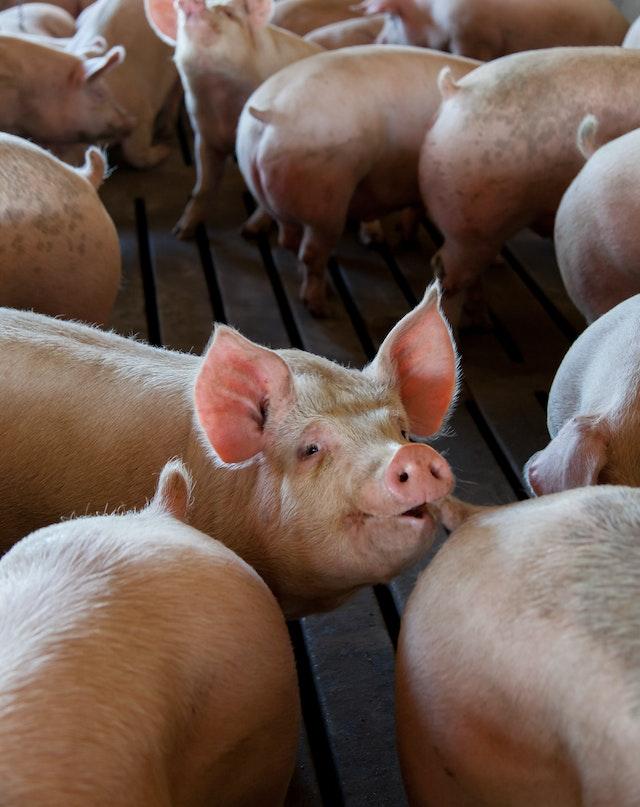From summer to autumn: a challenging period for your animals
In summer, cattle, pigs and poultry are susceptible to heat stress. The transition from one season to another also has a big impact on animal well-being. We often forget that the consequences of heat stress can be felt much longer, even after the initial period of intense heat. Sudden changes in temperature heighten animals’ susceptibility to disease and typical seasonal adjustments to their feed – with newly harvested cereals – can cause even more problems in relation to gut health. Fortunately, supplementing your livestock’s feed with certain additives will help to optimally maintain their health. It’s a good idea to pay extra attention to the quality of their feed and rations during the transition from summer to autumn.
Enzyme deficiency
Wheat and barley have just been harvested, and the first maize cereals have been stored. This means that new cereals are being mixed into feed. Newly harvested cereals are usually stored for several weeks before they are used. It is generally known that animals have trouble breaking down carbohydrates after consuming fresh cereals, which means that poultry and pigs can develop problems in relation to their digestion more easily. Pigs may even start displaying aggressive behaviour on account of this, such as tail, ear and flank biting. Among poultry, this leads to general digestion issues: intestinal infections, wet litter and lesions on the footpads. These problems can be solved by temporarily supplementing their feed with additional enzymes. Most poultry farmers opt for xylanase, but other enzymes can also be beneficial in this difficult period.
Presence of mycotoxins
The abundance of rain last summer has left its mark on the quality of the wheat. We have noted major differences between early and late harvests with regard to mycotoxin contamination. The combination of warm temperatures and a wet climate resulted in an ideal breeding ground for fungi. The toxins produced by fungi can cause digestive complaints, weakened immune systems, disruptions in the take-up of nutrients and numerous health problems and production losses in relation to this. The problem can be solved through the addition of specific toxin binders to the animals’ rations. On the one hand, these substances lower the risk of hazardous mycotoxins being absorbed into the gastrointestinal system. On the other hand, they ensure the accelerated elimination of toxins already present in the animals’ bodies. The result is healthier gut flora: a basic criterion for good health.

Fluctuations in temperature
The health of livestock is, however, impacted by more than feed alone. Timely temperatures adjustments are of particular importance to the well-being and resistance to disease of pigs and poultry kept in conditioned barns. In late summer, temperatures can fluctuate considerably, particularly after a heavy thunderstorm. At moments like these, the ventilation system does not always respond adequately. So, what happens? The resulting draught in the barn makes them highly susceptible to lung pathogens.
VDS Premix ensures the optimum health – and particularly gut health – of your animals
High-quality feed contributes to the health of your animals. The nutritionists at VDS Premix develop premixes that are tailored to your animals’ specific needs. Every premix contains a special blend of vitamins and minerals to optimise the health of your livestock. If necessary, we can supplement this with additives to maintain their gut health and minimise your chances of loss. In addition to the above, we would be happy to drop by your farm to provide you with veterinary advice in person. Is there anything in your barns that needs adjusting, or are you planning to organise seminar? Our experts will be happy to meet with you.


